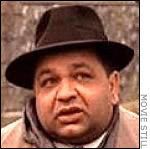| Rupert Pupkin |
05-30-2008 02:12 PM |
Quote:
Originally Posted by horseofcourse
I wish someone could explain this logic to me. If he was running a race an hour after the Preakness, I can see how this may be bad. But is it really meaningful in a race THREE weeks later that running .20 slower will make you win the race in THREE weeks? I mean running 9.5f fast is tough on a horse regardless. Is a tenth of a second slower really gonna mean the difference between winning and losing three weeks later?? It must be true because all the experts agree...but how is it true??
Personally if I run 2 miles today 2 seconds faster than normal...in 24 hours I will feel exactly the same regardless. How is it so much different than a horse that 3 weeks later, running 9.5 furlongs 0.2 seconds slower makes so much physiological difference??
|
First of all, we're not talking about 1/10th of a second. One length is about 1/5th of a second. So if a horse wins by 10 lengths instead of 5 lengths, we are talking about a full second. Under one scenario, the horse is all out. Under the other scenario, the horse is not even close to being all out. It makes a huge difference.
By the way, I saw Smarty Jones train between the Preakness and the Belmont and he didn't look like the same horse. In his morning gallops before the Derby and the Preakness, he couldn't have looked any sharper. He had his neck arched and ears pricked and he looked unbelievable. He didn't look the same way after the Preakness. That race knocked him out. |


